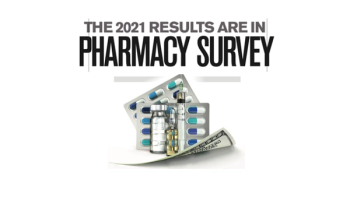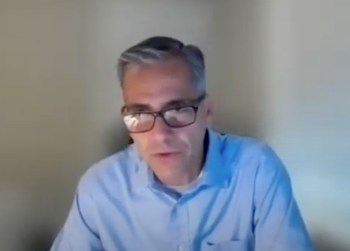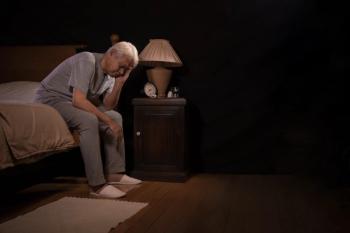
The pandemic caused a temporary dip in 2020. But as public health spending has decreased, sexually transmitted disease trends have increased.

The pandemic caused a temporary dip in 2020. But as public health spending has decreased, sexually transmitted disease trends have increased.

A large proportion of patients with muscle-invasive bladder cancer responded to transurethral resection of bladder tumor and a drug cocktail that included gemcitabine, cisplatin and Opdivo (nivolumab).

In this part three series, participants give their opinions on the most effective ways to reduce traditional and specialty pharmaceutical costs. MHE's annual pharmacy survey had over 225 respondents. We will be posting the results over the next several days.

In this part two series, participants give their opinions on the lasting effects of the pandemic. MHE's annual pharmacy survey had over 225 respondents. We will be posting the results over the next several days.

Clinical data integration can mean navigating through an obstacle course of organizational and technical challenges. But it can show its ROI bona fides with digital chart review and other efforts.

Respondents upbeat about COVID-19 vaccination. MHE's annual pharmacy survey had over 225 respondents. We will be posting the results over the next several days.

Study shows an association between greater "eveningness" (being awake and alert at night) and cannabis use and binge drinking.

In this week's episode Senior Editor Peter Wehrwein chats with Founder and Executive Chairwoman of Caravan Health Lynn Barr. The two discussed the relationship of payers and ACOs and the approach toward the direct contracting model.

Research and investment are increasing into psilocybin and MDMA as treatments for several mental health disorders.

Strategies are needed that take most, if not, all of the burden away from the patient so that RPM enhances their experience with their care. Both telehealth and RPM have those elements needed to improve the patient experience, including good communication between doctors and patients and improved patient engagement.

The jury is still out. Several companies have high hopes for candidates under development.

As patients become discerning consumers of healthcare, providers are focused on implementing processes and technologies that enhance the entire experience, from care delivery through to payment obligations.

According to a new West Health/Gallup survey, less than 20% of all Americans believe Medicare negotiation would hurt innovation or market competition, including a minority of Republicans.

Today's approval goes against the advice of an outside advisory committee.


Semaglutide injection is a weekly injection for chronic weight management in adults.

Researchers are making progress in identifying drugs that target certain mutations.

Harvard researchers say, well, maybe.

Ten years ago, specialty accounted for 15% to 20% of the money spent on drugs, according to Prem Shah, executive vice president of specialty pharmacy and product innovation at CVS Health.

Phase 1b results show manageable toxicities with Venclexta and Rydapt.

Biden is proposing a $46 million increase to the Ryan White HIV/AIDS Programs and $20 million for HUD’s Housing Opportunities for Persons with AIDS program. However, no increases were planned for hepatitis programs.

The FDA approved Amgen’s Lumakras (sotorasib) last week, the first drug targeting KRAS-mutated cancer to get the agency’s OK. But the clinical and commercial future of the drug is uncertain.

The Association of Community Cancer Centers launched the ACCC Community Oncology Research Institute, which builds on the organization's mission to close the gap in cancer research through optimal community oncology partnerships.

The CDC estimates that on any given day, 1 in 31 hospital patients and 1 in 43 nursing home residents has a healthcare-associated infection, which is an infection that occurs while being treated in a medical facility.

Patients with Alzheimer’s disease or who were at high risk for the disease had a weaker correlation between brain activity and cerebrospinal fluid flow while sleeping.

COVID-19 vaccination race among pharma giants results in brand value growth – Pfizer up 6%, AstraZeneca up 18%, and Sinopharm up 58%.

More flexible “in lieu of services" and pooled funding arrangements could help build a more integrated healthcare system so efforts to address the social determinants of health are prioritized and paid for says Healthify co-founder and CEO.

NCCN recommends Brukinsa for CLL/SLL even though it is FDA-approved for mantel cell lymphoma.

In this week’s episode of Tuning In to the C-Suite podcast, MHE Associate Editor Briana Contreras spoke with Ash Shehata, KPMG’s national sector leader for healthcare & life sciences. The two chatted about a recent paper by KPMG titled “From payor to healthcare partner,” which highlights how the pandemic drove changes for plans to adopt a patient-centric model and it gives a look into the six healthcare trends to watch for in 2021.

Tumors glow pink under blue light.